If you’ve never tried snowshoeing, this might be the season for you to try.
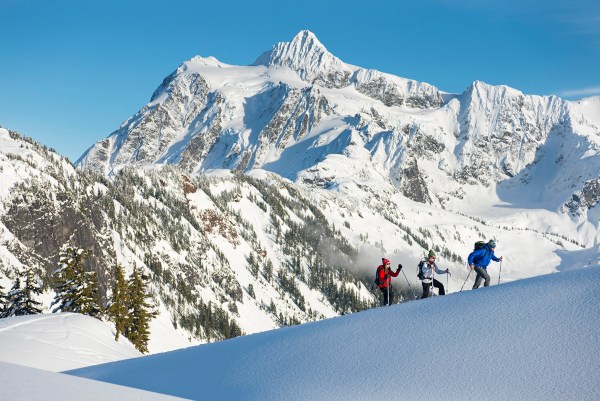
I’m amazed at the number of people who love to hike during the summer months but don’t get out during the winter months. Snowshoeing is such an easy way to access your favorite trails during the wintertime and keep you active. And it’s easy! As I was told by the person who took me on my first outing, “Learning to snowshoe is a two-step process: take a step with your left foot, then with your right foot—now you’re an expert.”
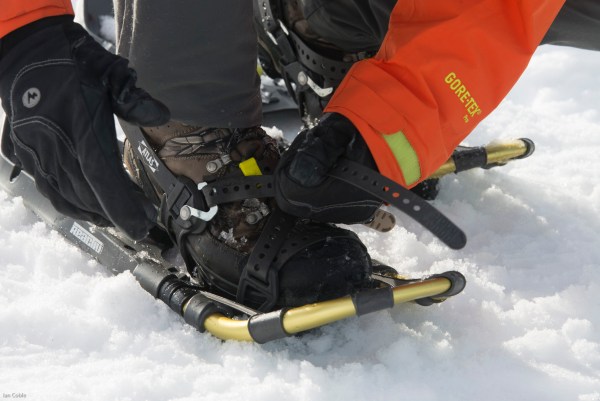
Having the right footwear will make or break your outing. If you’re on groomed or packed trails, a simple pair of waterproof or water-resistant running shoes will do. If you’re going to be venturing off trail, make sure you have a pair of comfortable, waterproof boots. If the snow’s really deep, maybe a pair of gaiters too. For that matter, make sure you have a good pair of waterproof pants. You’ll be surprised at how much snow can get kicked up when walking even on groomed trails.
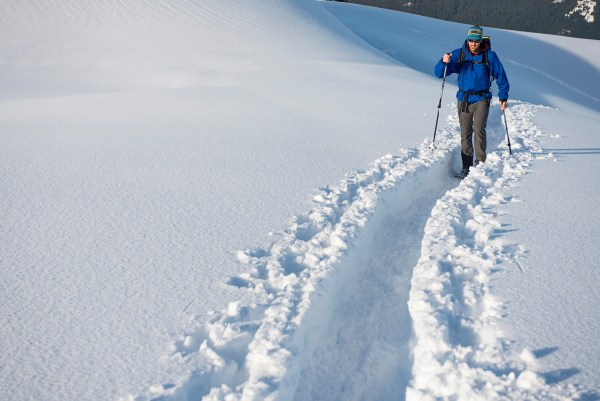
While not necessary, a pair of adjustable poles is incredibly helpful, especially when venturing off groomed trails. Poles will give you better traction and stability and they’ll take some of the load off your joints on the decent.
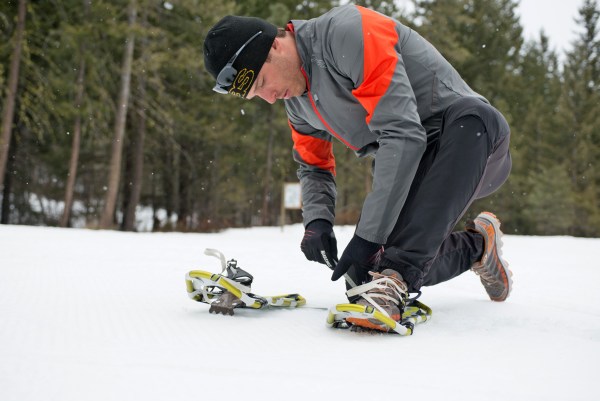
Find a pair of snowshoes that will work for your interests. If you’re venturing off trail, get a pair of snowshoes that are more robust, have a heel lift and a sturdy crampon (the pointy teeth on the underside of the shoe) for traction. If you’ll mainly be sticking to groomed trails, a lighter pair of snowshoes will save you some weight and money.
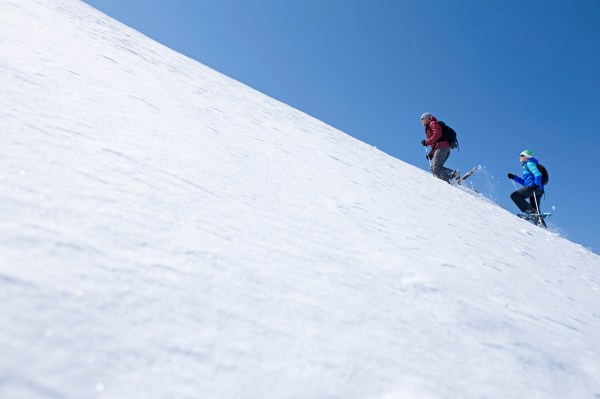
On steeper terrain, be sure to utilize the heel lift on your snowshoes (assuming your model has one). The increased height of the heel lift will save your calves a lot of unnecessary fatigue on steep pitches. Most heel lifts can be engaged using your trekking pole. Place the handle grip of your pole beneath the lift and simply pry it up. This will save you from having to bend down to flip them up.
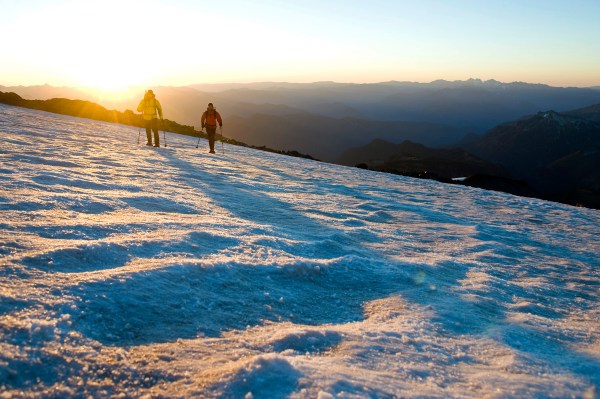
If you’re starting your adventure early, take into account that colder morning temperatures may make the snow firm and icy. Take your time on your first few steps to test the snow before charging off. Even with the sharp crampon teeth, you can still slip on extra-icy surfaces.
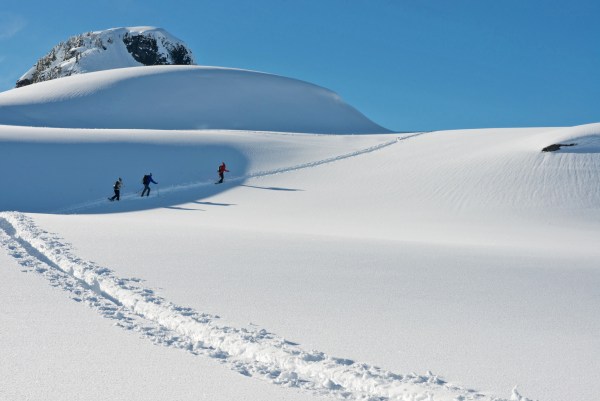
When going up steeper pitches, don’t always think you have to go straight up. Use a zigzagging path instead. By going up the slope at an angle, you’ll decrease the steepness, you’ll avoid losing traction and you’ll save your leg muscles from tiring too early.
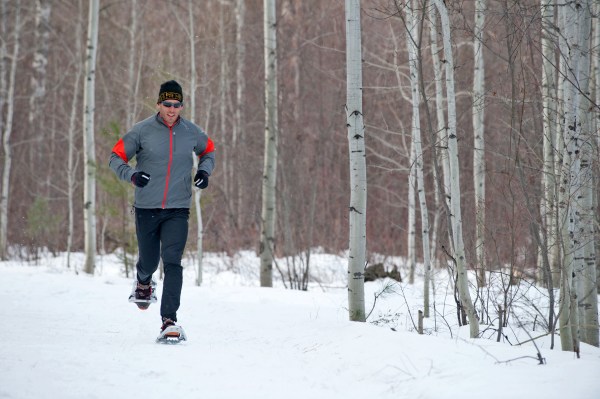
Looking for places to snowshoe but not sure where to go? Check with your local ski area or cross-country center. Many resorts will have designated snowshoe trails or they can steer you in the right direction. Just be sure to respect others and not damage the classic track for cross-country skiers or the skin track of backcountry skiers. Also, check with your local REI for advice on trail networks in your area.
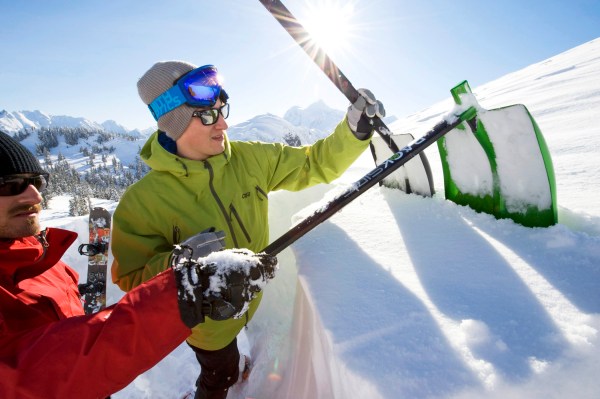
Be safe! If you’re going to be venturing into the backcountry, take time to plan your route and analyze the conditions. Just because you’re snowshoeing doesn’t mean that you aren’t susceptible to the same risks as backcountry skiers and snowboarders. Check the avalanche forecast with the Northwest Avalanche Center (NWAC) or with your local avalanche forecasting organization. Make sure you have your backcountry gear with you (transceiver, shovel, probe, food, water, first aid kit). And if you’re in doubt, it’s always better to turn around and come back another day.
Have fun!
